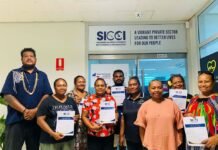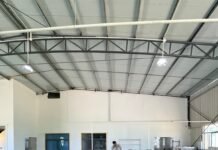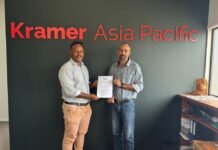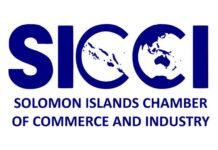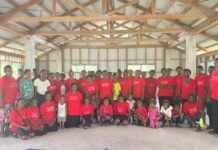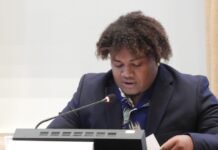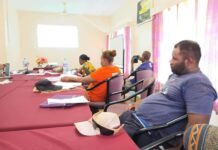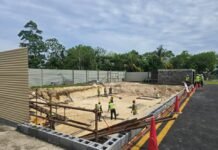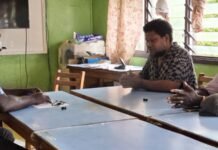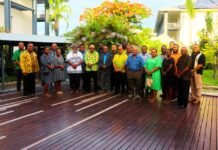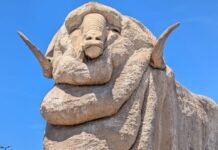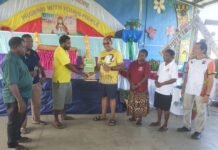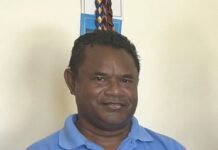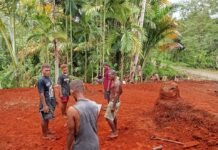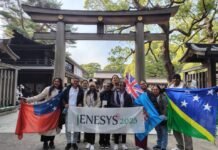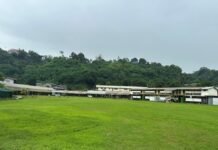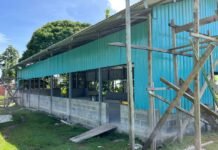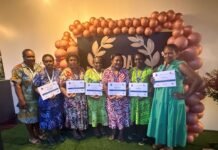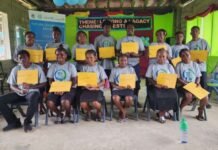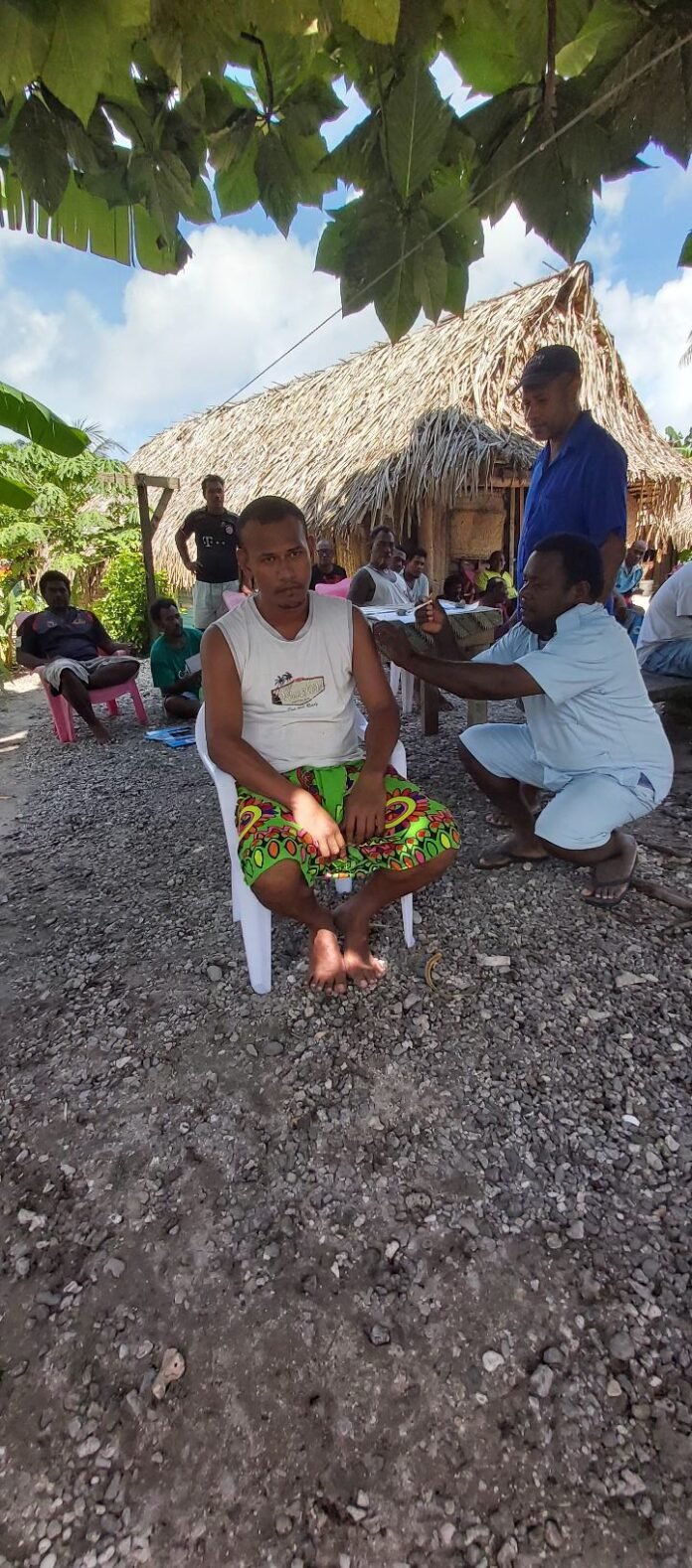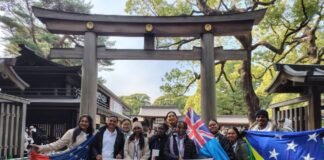More than 1,500 people reside in Luaniua and Pelau which are two Lord Howe outer islands located in the Malaita Province in the Solomon Islands. It takes almost a full day of travel to reach the two remote atoll islands from the capital city Honiara.
These remote islands form part of the emergency zones declared in Solomon Islands due to their proximity to Nukumanu atoll of Papua New Guinea, which has been experiencing a surge of COVID-19 cases.
A team of more than twenty health officials travelled to these remote atoll islands to provide lifesaving COVID-19 vaccines that arrived in the country through the COVAX facility. The team included doctors, nurses, a data collector as well as the national Cold Chain Technician, Mr. Scott Wanebeni.
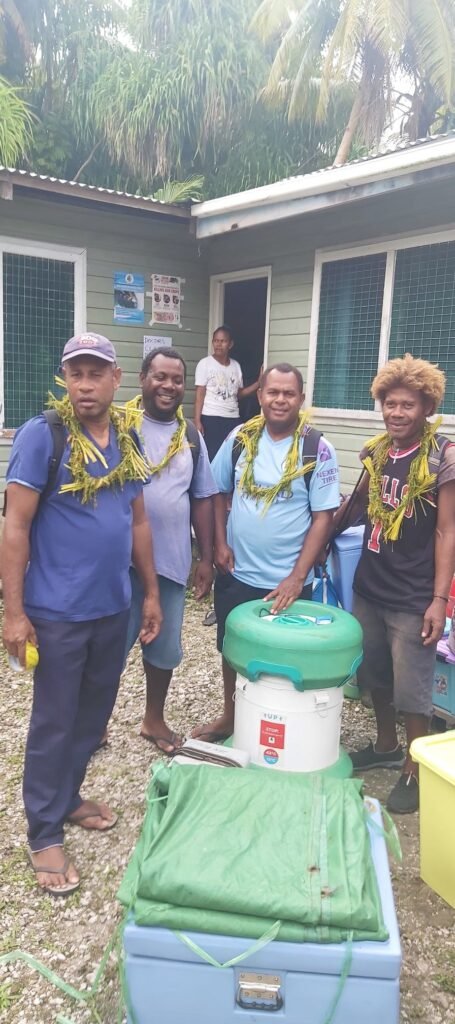
“This was my second time visiting these remote islands. On my first visit, I installed solar fridges for routine vaccines. Now I feel so happy to have reached these islands with the COVID-19 vaccines,” said Scott.
“Our team travelled by a ship for a whole night and half a day to reach these islands from the mainland. It was very important for us to reach these remote islands as they are located close to Papua New Guinea’s borders and the deadly virus could easily reach our islands,” he said. “We need to keep our most remote people safe and protected.”
The vaccines were carried in a special portable cold box that kept the vaccines safe for up to 35 days.
“We spent about a week on the islands travelling for almost three hours on the ship from Luaniua to Pelau and then back. Some of the villagers were happy to see us and welcomed us as they believed we brought good health. But some people were scared and reluctant,” said Scott. “We informed the villagers that these vaccines were safe and would protect them from the deadly virus going around.”
Rumours were circulating that the vaccines were unsafe and could cause harm to the body. After informing the villagers about the importance of being vaccinated and sharing accurate information about the vaccines, more and more villagers came forward to get vaccinated.
“These islands that we have reached are so small – you can even walk across them in five minutes. I am so happy to bring COVID-19 vaccines to these small, remote islands because no community should be forgotten in this global pandemic,” said Scott.
The lifesaving vaccines were part of the first batch of Oxford-AstraZeneca COVID-19 vaccines to arrive in the Solomon Islands under the COVAX Facility, a partnership between CEPI, GAVI, UNICEF and WHO. UNICEF has led the procurement of the vaccines through the partnership with the Solomon Islands Ministry of Health and Medical Services.
This is a historic step towards achieving the goal to ensure equitable distribution of COVID-19 vaccines globally in what will be the largest vaccine procurement and supply operation in history.
UNICEF is supporting the Government of Solomon Islands’ COVID-19 preparedness and response activities with funding support from the Asian Development Bank (ADB), Government of Japan, United States Agency for International Development (USAID), Australian Government Department of Foreign Affairs and Trade (DFAT), and the Government of India through the United Nations Office for South-South Cooperation (UNOSCC), in partnership with the World Health Organization and The Pacific Community (SPC).
SOURCE: UNICEF PACIFIC






